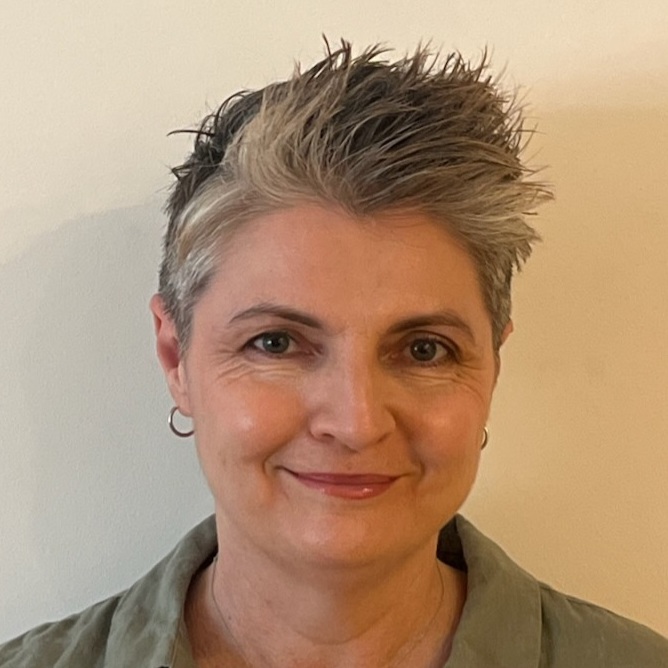By Justine Field
Content notice: references to workplace bullying
I worked as a lawyer for two decades before I learned that I had a neurodivergent brain. I was diagnosed Autistic and later with ADHD. Undiagnosed neurodivergence has shaped my career trajectory in ways that I am still unravelling.
While my occupation gave me access to privilege, it came at a cost. The cumulative stress of working in neurotypical environments without the support I needed, along with other life stressors has impacted on my mental and physical health.
An unemployment rate eight times that of the non-disabled population reflects the difficulty for autistic people sustaining employment as well as obtaining it. Many are underemployed in terms of hours worked and under-utilised skills and qualifications. Sustaining employment is also more difficult for people with ADHD. Some, like me become self-employed.
While the unemployment stats for neurodivergent people aren’t broken down by gender, research suggests there are additional challenges for women and gender diverse people that contribute to less stable employment.
We are more likely to be diagnosed older due to gendered and narrow diagnostic criteria and therefore more likely to enter the workforce without knowing we are neurodivergent.
That’s more years spent struggling in workplace environments and cycling through periods of burnout. More years of masking and invisible labour to conform to workplace behavioural expectations. More years of navigating systems, processes and practices designed for neurotypical brains. More years working harder than our colleagues just to keep our heads above water and still feeling the shame of falling short. More years of exclusion, bullying and trauma.
Even when we’re diagnosed, getting the support we need at work is far from assured. We’re misunderstood, disbelieved, and dismissed because our neurodivergence doesn’t match stereotypes and preconceptions.
When you have professional skills, it’s assumed that the rest will follow. But there’s a lot more to operating in a workplace than what’s in your role description.
For the first few years of my career, I represented clients in family law litigation. I worked hard, but nothing prepared me for the whims of male judges who routinely bullied female lawyers. I was trying to support traumatised clients in a brutal system that was also traumatising me.
A culture of sucking it up as though it was just part of the territory meant that no-one was made accountable for an unsafe workplace. Fortunately, this has changed in recent years.
My colleagues seemed to cope with the demands of litigation, taking in their stride the complexities and unspoken rules that were unfathomable to me. Some of them received accolades for their flourishes of brilliance while my struggle to get through each day remained my dirty little secret.
A high level of responsibility combined with low level of control over outcomes fuelled my anxiety. I felt overwhelmed and disempowered and a sense of impending doom filled my days and woke me at night.
An opportunity in a non-litigation role gave me the escape I needed. Although I was deeply relieved, I couldn’t shake the internalised ableism that made me feel as though I had failed. It wasn’t until my autism diagnosis that I finally stopped blaming myself. I understood why it had been so hard for me to function in that environment.
Admittedly, I could have made a better career choice but not knowing I was neurodivergent meant I lacked understanding of my strengths and limitations. But that doesn’t mean we should be excluded from occupations because of unaccommodating environments.
Even when I found roles better suited to my skills and attributes, I was still trying to fit into workplaces designed by and for neurotypical brains. It’s not just the physical environment, but hierarchies and subterranean office politics. It’s poorly designed and convoluted processes that are executive functioning hell. It’s neurotypical thinking and communication styles that shut down different perspectives in favour of maintaining the status quo.
Workplace claims of celebrating diversity and inclusion ring hollow unless they can provide a work environment that everyone can function within. Ableism is not just in behaviour and attitudes, but embedded in the systems that we work within.
Universal design is the idea that systems should meet the needs of a broad range of people without placing the onus on individuals to adapt. Most employers are still stuck in workplace accommodation processes that pathologise individuals for being outside the ‘normal’ way of doing things. Yet most people will at some stage experience vulnerability that impacts on their capacity to engage with workplace systems.
Real change can only happen by challenging workplace practices at a systemic level. But individuals can only do so much. We need employers to commit to building genuinely inclusive workplaces that draw on the lived experience of neurodivergent people. Otherwise, we will continue to be shut out of meaningful employment and workplaces will miss out on what we have to offer.
About the Author
Justine Field is a Sydney-based writer who discovered her neurodivergence (Autistic and ADHD) later in life. She has a background in law and policy, and strives to generate awareness of how workplaces and other environments can be more accessible and inclusive.
Contact Justine at: diverge999@gmail.com.

